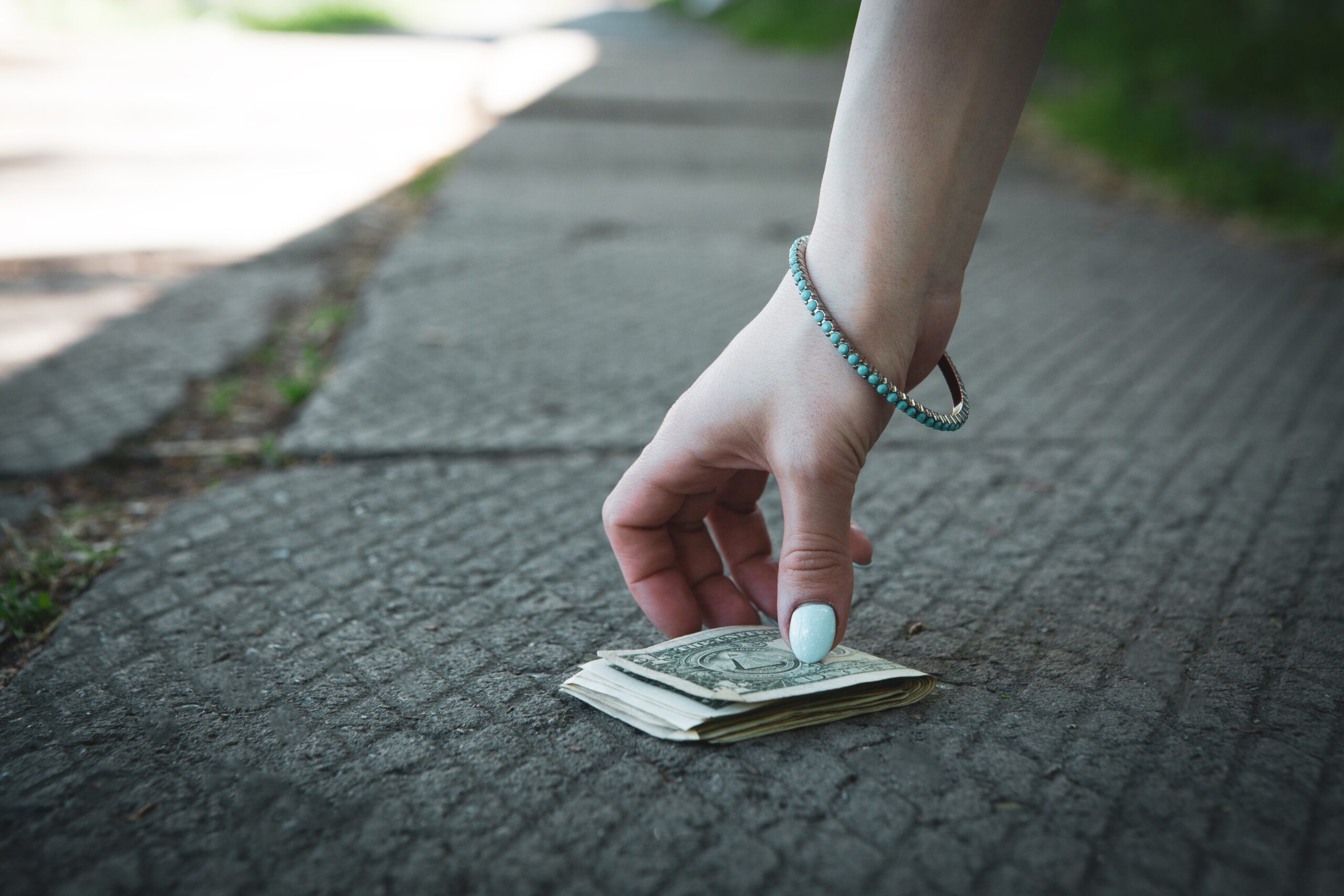Finding money on the street may seem like good luck, but is it really legal to keep it?
Even though money doesn’t have a name or identification like a check or bond, it is still someone else’s property.
Local or state laws usually dictate what you should do if you find money, especially if it is a large amount.
What to do if you find money or a lost wallet
If you find money, especially a large sum, it is best to check local laws or contact a lawyer or the police.
In many places, laws require you to turn over money to authorities if you cannot identify the owner.
In some cases, if no one claims the money after a period of time (usually three to six months), the police may return it to you.
However, in other jurisdictions, the money is deposited into public funds if it is not claimed.
What happens if you don’t report the money found?
If local laws require you to report found money and you decide to keep it without trying to identify the owner, you could face charges of theft or larceny.
And even if you didn’t take the money directly from a person, by not trying to return it you are retaining someone else’s property.
What are “reasonable efforts” to find the owner?
‘Reasonable efforts’ depend on how and where you found the money.
If you find a $20 bill on the street, it might be enough to ask people nearby if they lost it.
If you find a wallet with money, it is advisable to look for identification, such as credit cards or documents.
You could even contact a card’s customer service to help you locate the owner.
If the money or wallet was found in a public place, such as a restaurant, handing it over to the establishment may be a good option.
For large quantities, it is best to notify the police.
What are the penalties for keeping money or a wallet without trying to return it?
Penalties for keeping money or a lost wallet vary depending on the amount.
In most states, if you find a large sum (more than $950, for example, in California) and make no effort to return it, you can face felony charges, which carry a prison sentence of one year or more.
For smaller amounts, penalties are usually less severe, with possible fines and jail time of less than a year.
Contact a lawyer or the police
If you find a large amount of money, the most prudent thing to do is to contact the police or a lawyer, who will guide you on local laws and the steps to follow.
Continue reading:
–Subtle scam takes all the money from your bank account: the experts explain
–Woman who tried to rob Elvis Presley’s mansion arrested
–Scammers use fake parking tickets to steal
